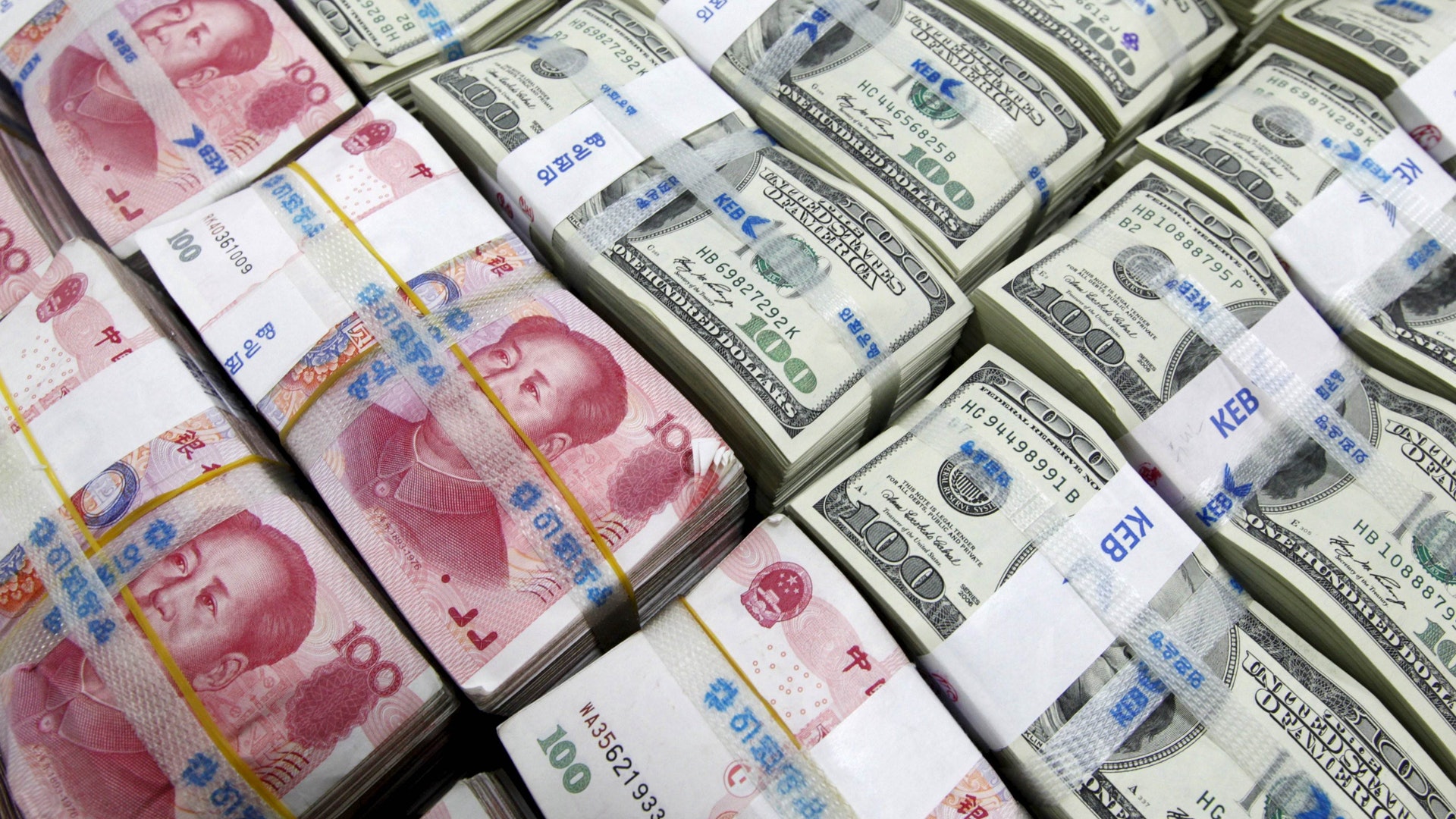The China-US trade war was officially upgraded in September. Although China announced on September 5 that the two sides agreed to hold formal negotiations in October, the expectations of the trade war are still pessimistic. Although the renminbi has strengthened on September 5, the exchange rate is still above 7. Public opinion generally believes that in order to hedge the negative effects of tariffs, the renminbi will continue to fall.
Since the RMB exchange rate “breaks 7”, the value of the yuan has fallen by 3.6% in August and reached a new low of 11 and a half on September 3. In the outside world, China believes that the RMB exchange rate has been used as a means to deal with trade wars. However, at the same time, it believes that this means is very risky. One of the most common expectations is that this could lead to capital flight in China.
For example, David Lubin, head of emerging market economy at Citi Bank, cited multiple potential risks of RMB depreciation. The “most self-destructive” risk is to undermine the stability of China’s capital account and exacerbate capital outflows.
AFP’s analysis reports that the decline in the value of the renminbi may undermine investors’ confidence in the Chinese economy, lead to the sell-off of capital flight, and even bring depreciation pressure to other emerging market countries, thus causing a global economic crisis.
Bloomberg said that since the Chinese stock market crash in 2015, all Chinese who tried to transfer their money overseas have put downward pressure on the renminbi. If the devaluation of the renminbi causes the crisis in 2015 to break out again, then China will be in big trouble. “.”
Capital flight is a question that the Chinese economy will encounter every few years. Will the depreciation of the RMB exacerbate China’s capital flight?
The depreciation of the RMB has exacerbated capital flight?
The situation of large-scale capital flight is due to economic crisis, political turmoil, war and other factors, and the phenomenon of domestic capital flowing rapidly abroad. The 1997 Asian financial turmoil is an example. China has also experienced rapid capital outflows after the stock market crash in 2015.
According to the official report of the State Administration of Foreign Exchange of China, China’s capital and financial account deficit in 2015 was US$485.3 billion. Direct foreign investment and securities investment assets continued to increase and increased by 53% and 5.8 times more than in 2014. The net outflow of foreign investment such as investment, securities investment and other investments was US$101 billion. Hot money does have a tendency to “escape”.
The situation is completely different now.
This year’s data shows that in the first quarter of 2019, China’s current account surplus was $49 billion, and the non-reserve-type financial account surplus was $48.8 billion. According to specific data, the net inflow of direct investment was 26.5 billion U.S. dollars, of which, the net inflow of foreign direct investment to China was 47.6 billion U.S. dollars, the net outflow of China’s foreign direct investment was 21 billion U.S. dollars, and the net inflow of securities investment was 19.5 billion U.S. dollars. Among them, foreign investment in China’s securities increased by 35.7 billion US dollars, and China’s foreign securities investment increased by 16.2 billion US dollars. Excluding the impact of non-trading factors such as exchange rate and price, China’s foreign exchange reserves increased by 10 billion U.S. dollars in the first quarter.
The double surplus of current account and financial account shows that capital has not only “escaped” or even outflows.
The response of the China Foreign Exchange Administration to whether the RMB depreciation caused capital outflows is that although the market volatility has increased, from the data of some channels such as daily cross-border capital flows, it is far from the high pressure of capital outflow in 2015 and 2016. During the period, the daily deficit of personal settlement and sale was only 28% of the daily average of the highest month at that time. The average daily outflow of cross-border funds was only 12% of the daily average of the highest month.
In fact, since the end of 2017, the currencies of countries such as India, South Korea, and Brazil have already depreciated more than 10% against the US dollar. The depreciation of the renminbi is within the normal range under the current mechanism. Simply linking currency depreciation to capital flight is unfounded.
What is the actual situation?
US President Donald Trump has repeatedly said that companies are fleeing from China, and even recently ordered “American companies” to withdraw immediately. However, the voice has not fallen, the United States-US Business Council (US-China Business Council) released a report at the end of August, showing that in a survey in June, 87% of the 100 companies surveyed in the United States said they did not intend to withdraw from China, and Only 3% of respondents said that there is no profit in China’s operations, and the change in 2018 is small.
Since the trade war, when global cross-border investment has declined, China’s use of foreign capital has not declined. In July this year, actual practical foreign investment continued to grow steadily by 4% in dollar terms. This shows that China’s market potential and the integrity of the industrial chain are recognized.
This explains at least in one aspect that the phenomenon of large-scale capital flight does not occur in China.
In fact, according to China’s interbank lending center data, a total of 2,114 foreign institutional investors entered the Chinese interbank bond market in August, an increase of 214 from the end of last year. The monthly trading volume increased by 43% month-on-month, up 63% year-on-year, accounting for 3% of the total trading volume of the current bond market.
According to Wind data, as of September 2, since 2019, the “Northbound Fund” has bought a total of RMB 126.9 billion (1 RMB is about USD 0.14). In August, the net purchase was RMB 13.2 billion, which is still more than that in July. . In August, it was the month when the RMB exchange rate, the middle price and the exchange rate index both depreciated significantly.
In this case, the capital flight is not enough.
Capital “remaining” or “escape” not only see the exchange rate
Regarding the issue of capital outflows, the China Foreign Exchange Administration said that compared with the RMB exchange rate, relatively stable economic fundamentals, still high comprehensive investment income, and gradually increasing demand for RMB asset allocation will be factors for cross-border capital. Flow has a more important impact.
That is to say, the departure and retention of capital is not only based on the exchange rate of a country, whether the currency is depreciating, but a comprehensive consideration of a country’s domestic political situation, social stability, market potential and economic fundamentals.
In emerging markets, China is still in a leading position in terms of overall manufacturing expertise, reliability, currency stability, security and domestic market growth. The Chinese market is still hot – whether it is the great interest of US Tesla founder Elon Musk in China, or the hot scene of the big American supermarket Costco coming to China, it illustrates the attractiveness of this market.
In addition, companies enjoy more favorable corporate taxes, the most complete industrial chain, complete infrastructure and lower energy costs in China. In addition, China’s labor costs are still lower than those of developed countries in the West, and the political situation is stable. The reason why American companies cannot respond to Trump is very clear.
The shift in manufacturing may even bring new opportunities to China. According to the data of the Ministry of Commerce of China in the first seven months of 2019, the actual use of foreign capital in the high-tech industry increased by 43.1% year-on-year, accounting for 29.3%. Among them, the actual use of foreign capital in high-tech manufacturing and high-tech service industries increased by 19% and 63.2% respectively.
Whether it is people or capital, the meaning of “escape” is to avoid disasters and dangers. However, the disasters rendered by the outside world do not have sufficient basis in Chinese society. Capital has come and gone, but China’s current situation is still far from the “flight” of capital.











